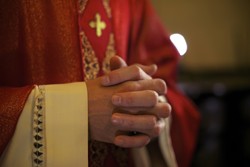The role of Catholicism in civil society
Funded by the EU, the project 'The invisible politics of religion: Catholicism, third sector and territory in southern Europe' (CATSSE) focused on the Catholic third sector. Fieldwork research in the Basque Autonomous Community (Spain), Aquitaine (France), Emilia-Romagna and Lombardy (both in Italy) provided empirical support of the project's undertakings. Initial work involved documentary analyses (secondary literature, original productions and media coverage) and semi-structured interviews carried out in the target regions. The underlying hypothesis was that religious actors have assumed new capacities, becoming civil society actors in a pluralistic environment. Defending both general causes and its own interests, the Catholic Church is involved in territorial governance networks associating civil society actors, private bodies and public authorities. CATSSE tested its hypothesis through case studies covering three topics. The first dealt with historical legacy and was carried out in collaboration with research networks on the social economy. Theoretical and empirical contributions were produced on the social history of the role of Catholicism in the genesis of territorial social economy in southern Europe. The second and third topics focused on the Catholic third sector. Research in the second — related to territorial welfare mix and immigration — included fieldwork and interviews with a wide range of Catholic third sector organisations. The third topic concentrated on mediation in ethnonational conflicts, specifically the Basque conflict. In-depth interviews with key-actors in Spain and France complemented documentary analyses relevant to this case study. Results of project work and findings were presented at academic venues and in academic publications. CATSSE also organised panels on related subject matter at three conferences and a workshop on popular culture and repertoires of protest. Project outcomes reveal changing relations of subsidiarity between religious social actors and policymakers. Evidence of the Church's social activism has implications for welfare governance styles and the liberalisation of welfare — particularly the outsourcing of social and care services. The knowledge produced by CATSSE could be used by religious and secular third organisations as well as policymakers to improve the governance of territorial welfare, as well as mediations of intercultural and ethnonational conflicts.







